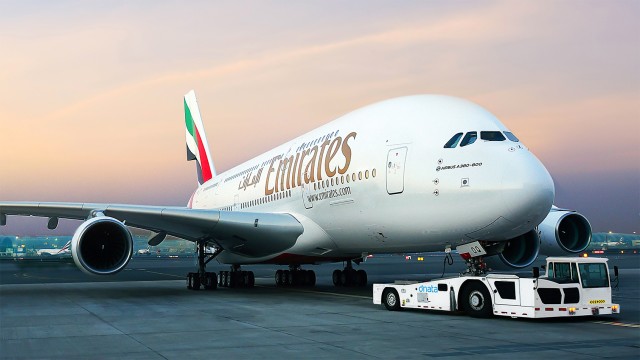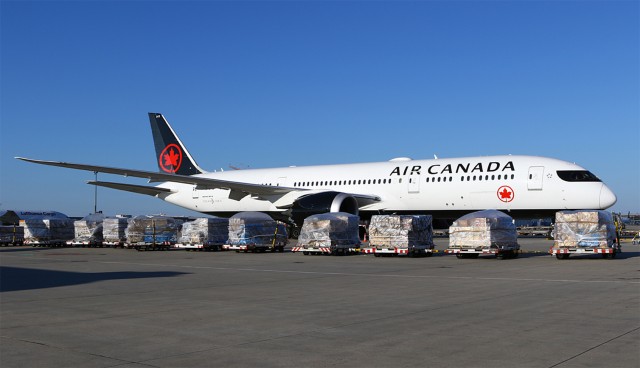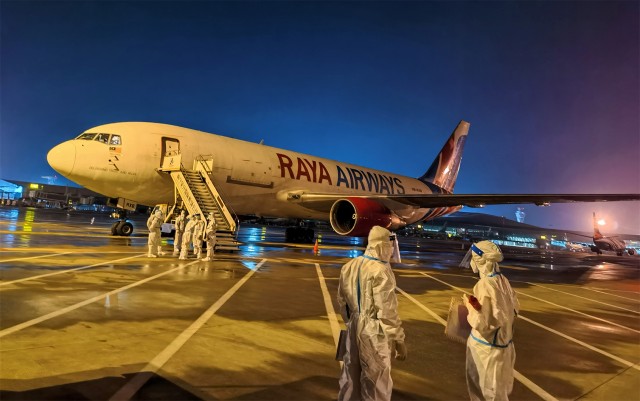The Emirates Group posted a loss of AED 22.1 billion (US$ 6.0 billion) for the financial year ended 31 March 2021 compared with an AED 1.7 billion (US$ 456 million) profit for last year. The Group’s revenue was AED 35.6 billion (US$ 9.7 billion), a decline of 66% over last year’s results. The Group’s cash balance was AED 19.8 billion (US$ 5.4 billion), down 23% from last year mainly due to weak demand caused by the various pandemic related business and travel restrictions across all of the Group’s core business divisions and markets.
His Highness Sheikh Ahmed bin Saeed Al Maktoum, Chairman and Chief Executive, Emirates Airline and Group, said: "The COVID-19 pandemic continues to take a tremendous toll on human lives, communities, economies, and on the aviation and travel industry. In 2020-21, Emirates and dnata were hit hard by the drop in demand for international air travel as countries closed their borders and imposed stringent travel restrictions.
"Our top priorities throughout the year were: the health and wellbeing of our people and customers, preserving cash and controlling costs, and restoring our operations safely and sustainably. Emirates received a capital injection of AED 11.3 billion (US$ 3.1 billion) from our ultimate shareholder, the Government of Dubai, and dnata tapped on various industry support programmes and availed a total relief of nearly AED 800 million in 2020-21. These helped us sustain operations and retain the vast majority of our talent pool. Unfortunately, we still had to make the difficult decision to resize our workforce in line with reduced operational requirements."
Emirates’ total passenger and cargo capacity declined by 58% to 24.8 billion ATKMs at the end of 2020-21, due to pandemic related flight and travel restrictions including a complete suspension of commercial passenger services for nearly eight weeks as directed by the UAE government from 25 March 2020.
Emirates SkyCargo put in a stellar performance by rapidly responding to new demand in a changed global marketplace, contributing to 60% of the airline’s total transport revenue.
Emirates SkyCargo quickly scaled up operations and rebuilt its cargo network to meet strong demand from shippers who faced a capacity crunch when the pandemic forced airlines to drastically reduce flights. It supplemented its existing freighter capacity by bringing into service 19 "mini freighters" - modified Boeing 777-300ER passenger aircraft with seats in the economy cabin removed to make room for more cargo. The cargo division also introduced new loading protocols to safely utilise overhead bins and passenger seats to carry cargo.
In addition to supporting global supply chains for food, medical and other trade items, Emirates SkyCargo also tapped on its pharma capabilities and infrastructure to support the worldwide distribution of COVID-19 vaccines and humanitarian relief to Lebanon in the aftermath of the Port of Beirut explosions.
In October, Emirates SkyCargo set up a dedicated GDP-certified airside hub in Dubai for COVID-19 vaccines, and later it partnered with UNICEF to facilitate the rapid transport of COVID-19 vaccines to developing nations through Dubai.
With the strong demand in air freight throughout the year, Emirates’ cargo division reported a revenue of AED 17.1 billion (US$ 4.7 billion), an increase of 53% over last year.
Freight yield per Freight Tonne Kilometre (FTKM) increased strongly by 88%, due to the unique pandemic situation which led to significantly reduced cargo capacity in the market worldwide.
Tonnage carried decreased by 22% to reach 1.9 million tonnes, due to the reduced available bellyhold capacity for the entire year. At the end of 2020-21, Emirates’ SkyCargo’s total freighter fleet stood unchanged at 11 Boeing 777Fs.
The impact of COVID-19 was felt across all dnata businesses, and in 2020-21 dnata recorded a loss of AED 1.8 billion (US$ 496 million) for the first time. This includes impairment charges of AED 766 million (USD 209 million) on goodwill and other intangible assets across all its divisions.
He concluded: "In the year ahead, we will continue to adopt an agile approach in responding to the dynamic marketplace. We aim to recover to our full operating capacity as quickly as possible to serve our customers, and to continue contributing to the rebuilding of economies and communities impacted by the pandemic."





